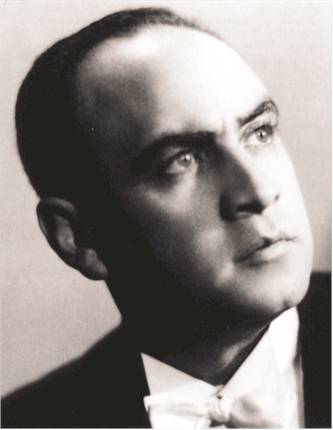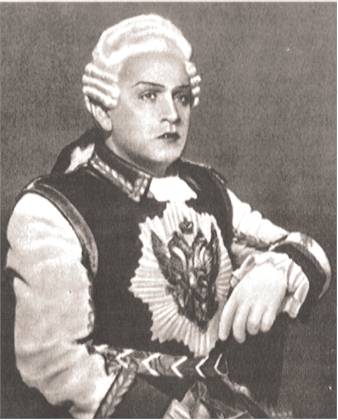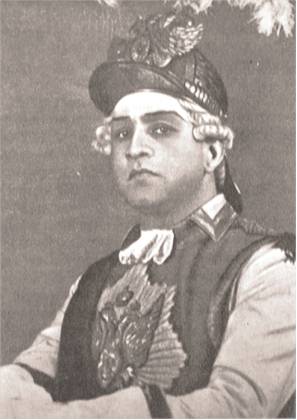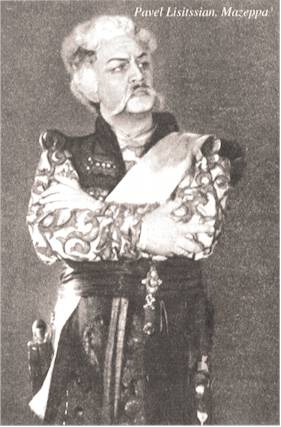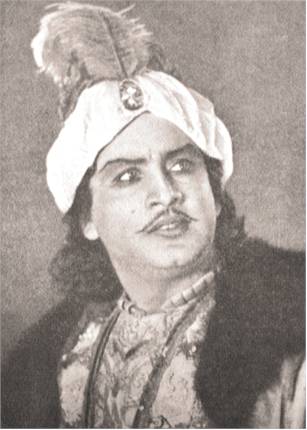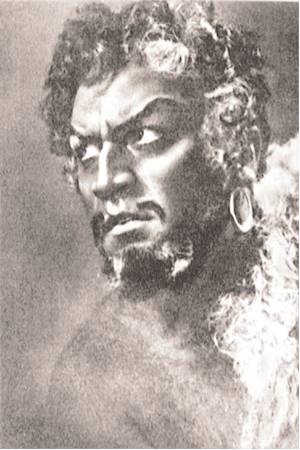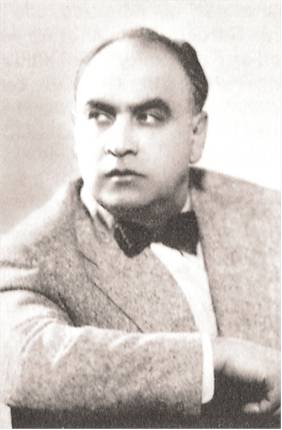Armenian baritone, 1911 - 2004
Biographical notes:
Pavel Lisitsian was born into an Armenian working-class family and he initially seemed predestined for a job in a factory. He worked in a diamond drilling group for some years. At the
age of 19 he decided to study at the worker’s university in Leningrad (St. Petersburg). Meanwhile his vocal talents became so evident that he began to take singing lessons. He had sung in church
when he was a child, and during his years in the factory he had appeared in some amateur performances quite successfully. Singing became very soon his professional aim. He attended the
conservatory at Leningrad from 1932 until 1935. At the beginning of his studies he still used to work as an electric welder, but eventually received a contract as a soloist in the Leningrad Maly
theatre. Within a year he was engaged to appear at the opera house of Eriwan, where he had the chance to sing many important baritone roles. In 1940 he joined the ensemble of the Bolshoi
theatre where he was a regular member until the end of his stage career in 1966! He was one of the few Sowjet artists who were allowed to make appearances outside the Soviet Union. He sang
at La Scala, at the Met (his voice was found small there...) and in many other European operahouses. As a recitalist he travelled more than 30 countries, including Indonesia, Austria,
Sweden and Japan. In the last 10 years of his career he concentrated on song- and concert repertoire. He was a superb interpreter of Armenian (folk) songs and one of the most popular
singers of the Sovjet Union. Three of his four children became singers and his family joined him to form the “Lisitsian Quartet.” Pavel Lisitsian was honored many times and received the title
“People’s Artist of the USSR.”
In one of his greatest roles: As Yeletzky in Tchaikovsky’s “The Queen of Spades”
In the title role of Tchaikovsky’s “Mazeppa”
As the Venetian Guest in Rimsky-Korsakov’s “Sadko”
As Amonasro Comment: Pavel Lisitsian is one of the few well-schooled Russian singers after Worldwar II. There was
only one baritone who could equal him, this was the Estonian Georg Ots
. I do not want to leave unmentioned the emiment Romanian baritone
Nicolae Herlea
. The three singers set a standard in the 1950/60s in their vocal category. Lisitsian is a baritone who is not a “singing actor” at the expense of a fine tone production (as we
know from many Italian baritones at the time). Lisitsian was already in his fifties when he recorded some of the Tchaikovsky and Rachmaninov songs. You can enjoy a firm voice which is
still in superb condition. A characteristic of his singing is a very clear and forward enunciation. Many of his recordings are released on CD. Yeletzki’s aria, the Venetian Guest song in Sadko, his
Eugen Onegin, are surely models of their kind. I also admire him in Italian arias (in Russian) in Il balen del suo sorriso and in Zazŕ, piccola zingara. He sings a wonderful Avant de quitter ces lieux
in true belcanto manner. This aria is beautifully conducted by the great conductor Vassili Nebolssin. Lisitsian’s Si puň belongs to the best versions on records.
He was an eminent recitalist and there are some great Lieder recordings. He sang mostly in Russian but there is also Schubert’s Atlas and An die Musik, Schumann’s Ich grolle nicht and Die
alten, bösen Lieder. He sings them in astonishingly good German!
|
||||||||||||||||||||||||||||||||||||||||
